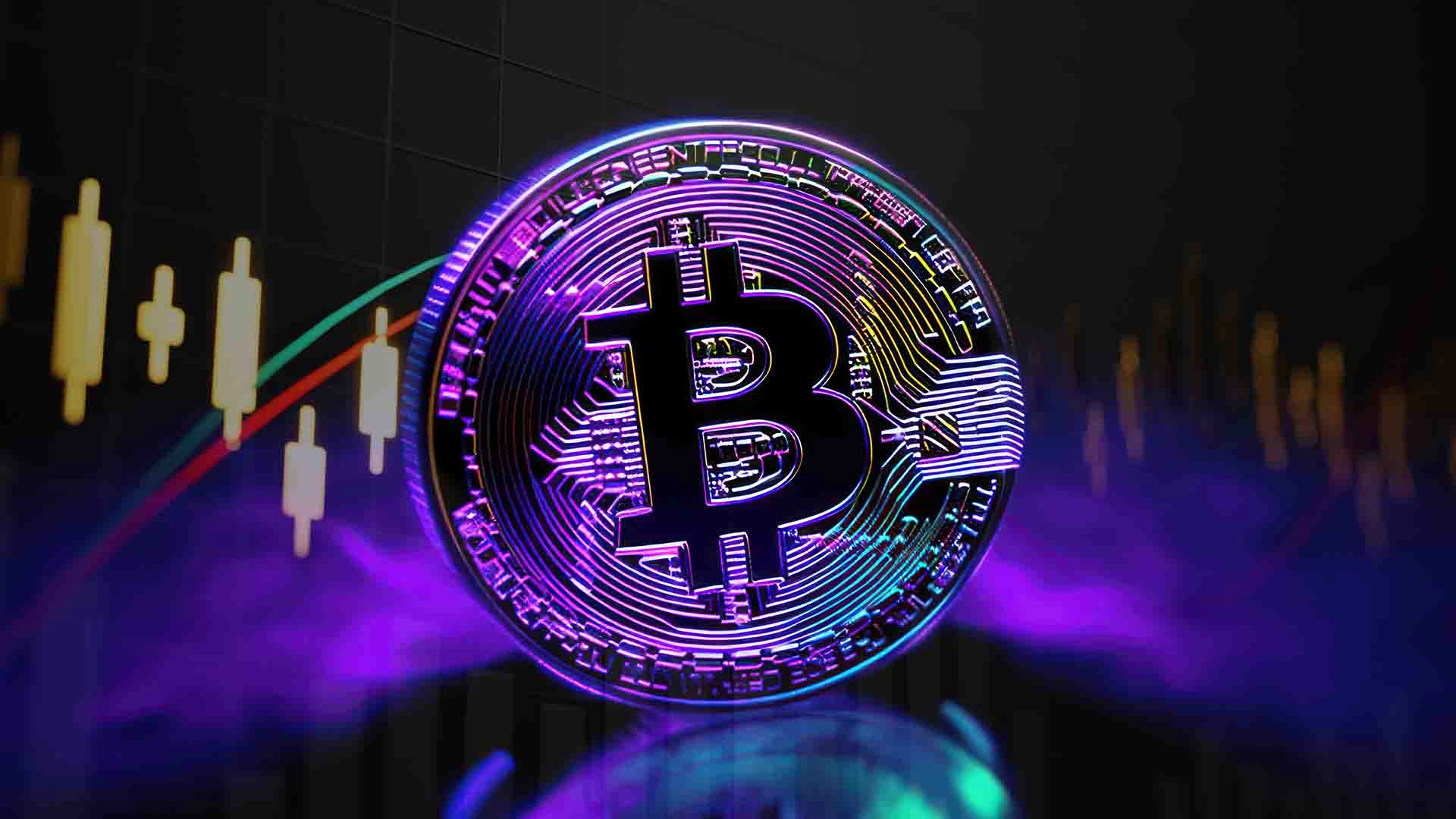How Vietnam Quietly Climbed to #5 in Global Crypto Adoption
In the global race to embrace digital currencies, few would have guessed that Vietnam—a developing country without a formal crypto regulatory framework—would emerge as a frontrunner. Yet according to the 2024 Chainalysis Global Crypto Adoption Index, Vietnam ranks fifth in the world in terms of grassroots cryptocurrency use.
This rise isn’t driven by large institutions or billion-dollar hedge funds. It’s fueled by everyday Vietnamese users, who are increasingly adopting digital assets not just for investment, but also for savings, remittances, and even entrepreneurship. In a country where more than two-thirds of the population is under 35 and digital fluency is widespread, it’s perhaps not as surprising as it first seems.
A Snapshot of Vietnam’s Crypto Ecosystem
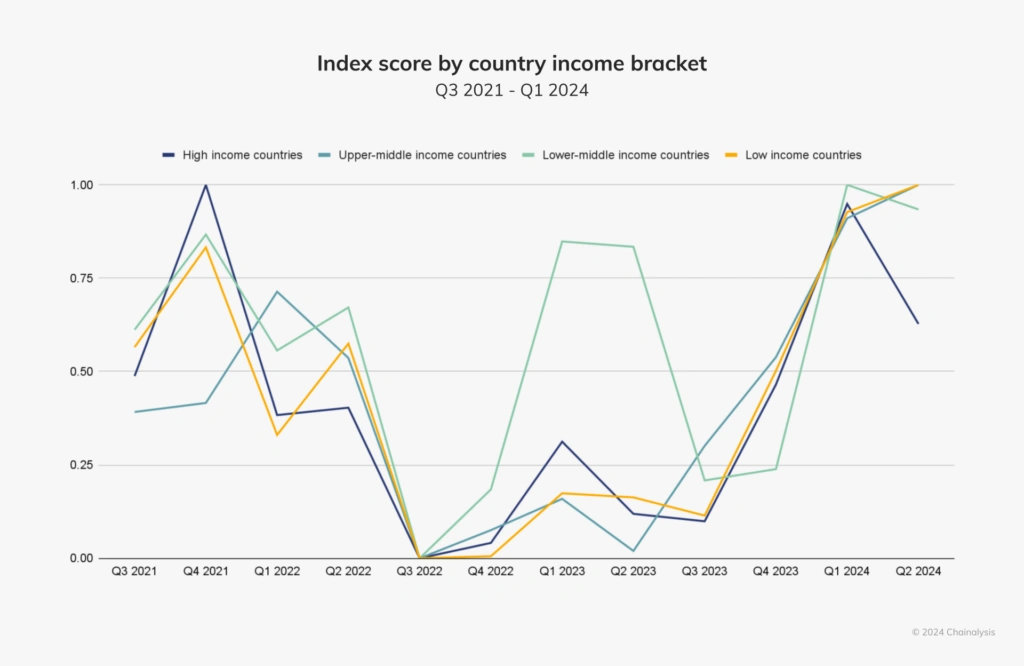
Credit from Chainalysis
Chainalysis data reveals that Vietnam’s total crypto transaction volume reached approximately $120 billion in 2023, a remarkable figure considering it’s up 20% from the previous year—and several times greater than the country’s total foreign direct investment in the same period. Approximately one in five Vietnamese people owns digital assets, making Vietnam second globally in terms of individual ownership rate.
The country also ranks among the top five for usage across centralized services and decentralized finance (DeFi), suggesting that engagement is deep, not just wide. Vietnam’s drop from #3 to #5 between 2023 and 2024 is not a sign of retreat but rather a reflection of how fiercely competitive and fast-evolving the crypto space has become globally.
Why Crypto Adoption Took Root in Vietnam
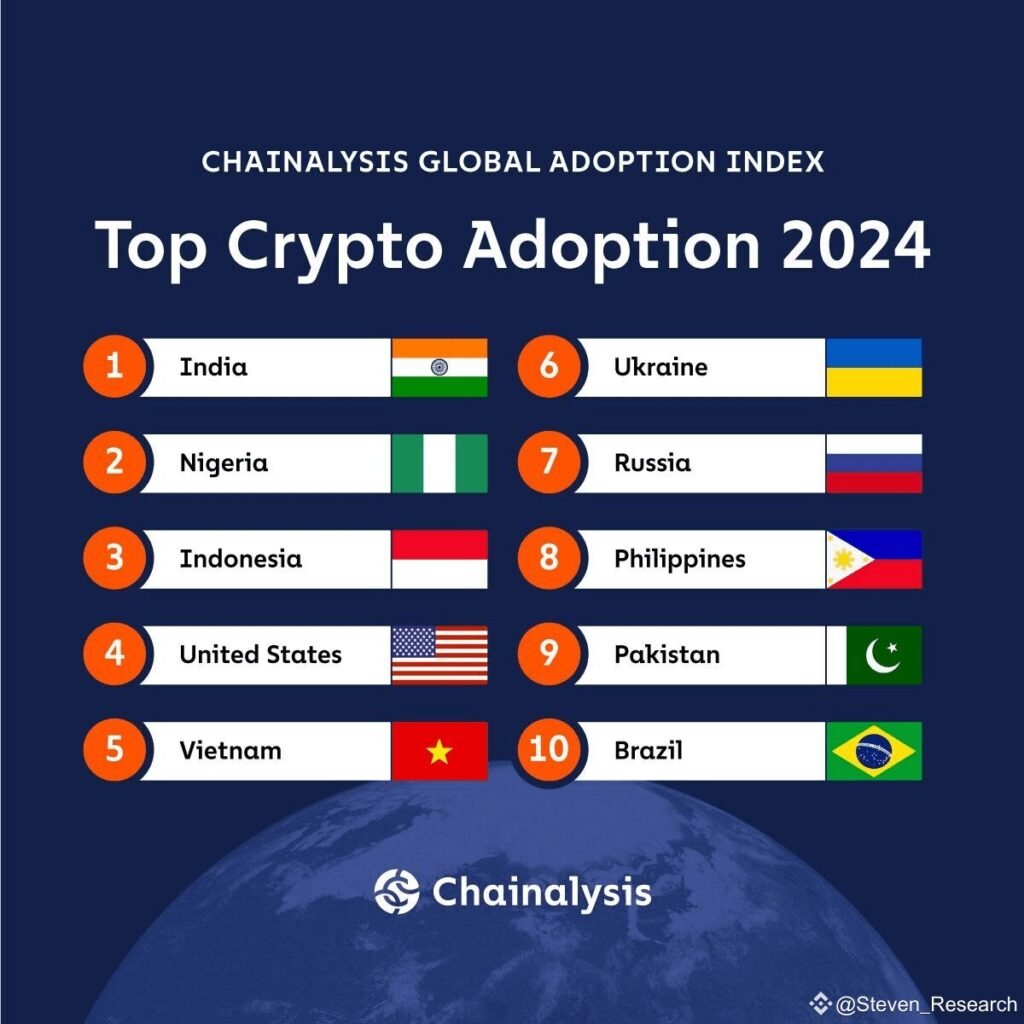
Credit from Binance
Vietnam crypto adoption boom can be traced to a combination of cultural readiness, economic context, and demographic advantages.
Vietnamese youth have a reputation for being early adopters of technology. From e-commerce to edtech to blockchain-based games, they embrace digital platforms with energy and agility. Crypto, with its promise of decentralization and financial self-determination, fits naturally into this digital-first mindset.
Many Vietnamese households also lack access to traditional financial services, especially outside major cities. Digital wallets and decentralized finance tools offer an alternative—one that doesn’t require bank accounts, physical infrastructure, or even a credit history.
On top of that, Vietnam’s economy is increasingly global. With millions of citizens working overseas, remittances are a lifeline. Cryptocurrencies provide a faster, often cheaper, way to move money across borders, sidestepping high fees from traditional wire transfer services.
The Legal Vacuum: Innovation vs. Regulation
Despite its thriving crypto activity, Vietnam has yet to officially recognize digital assets or cryptocurrencies. There are no dedicated laws governing how crypto should be taxed, traded, or regulated. This has created a grey zone—an open space for innovation, but also for risk.
Many Vietnamese startups with blockchain or crypto-based business models choose to register in more crypto-friendly jurisdictions like Singapore or the United States. They then operate in Vietnam as overseas entities. The result? Tax revenues are lost, and legal accountability becomes murky.
Nguyen Duy Hung, Chairman of SSI Securities, noted that the lack of a clear legal framework puts Vietnamese businesses at a disadvantage when competing with regional players in Thailand or Singapore. Investors, meanwhile, face significant risks due to the absence of consumer protection regulations and clarity on the legality of certain tokens or trading activities.
Not Without Risks: A Word for First-Time Investors
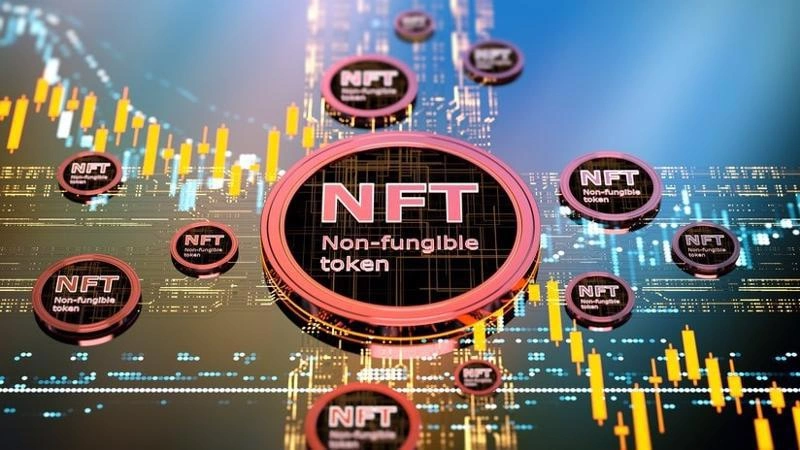
Credit from tapchitaichinh.vn
While the crypto world may seem exciting, it’s not without its hazards—especially in markets with little regulatory oversight.
The Vietnamese crypto space, like many others, is home to scams and poorly vetted projects. For newcomers, understanding what’s legitimate and what isn’t can be challenging. Some digital assets marketed in Vietnam have turned out to be fraudulent, catching inexperienced investors off guard.
Price volatility is another concern. Assets like Bitcoin or Ethereum can lose significant value in short periods, and new users unaccustomed to these fluctuations may panic or suffer losses. Decentralized platforms, while empowering, often come with complex user interfaces and little customer support.
Bitget CEO Gracy Chen noted that beyond market risks, the Vietnamese crypto community also struggles with education gaps. Many users participate in complex ecosystems like DeFi without fully understanding the risks—or how to secure their digital wallets properly.
Getting Started with Crypto in Vietnam
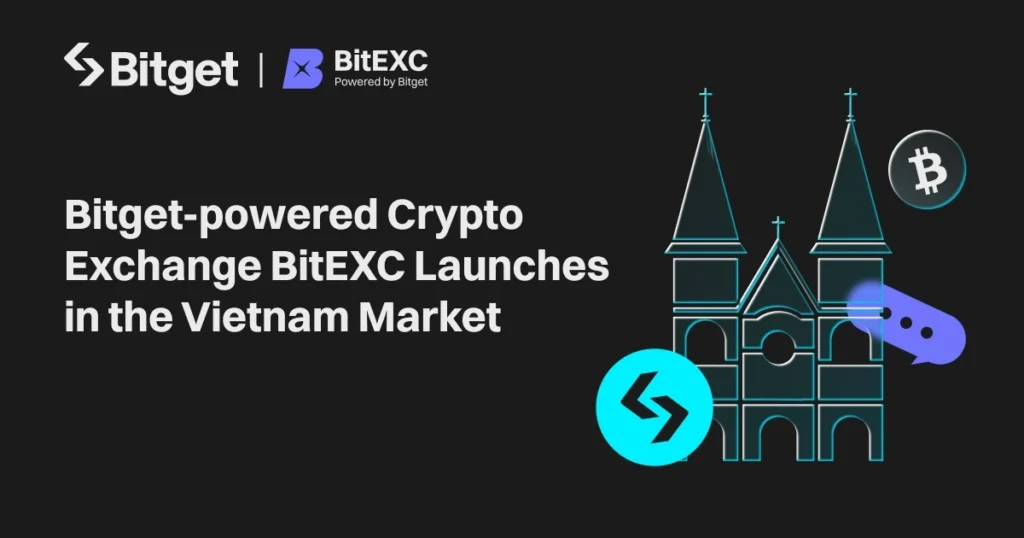
Credit from Bitget
For those just entering the world of cryptocurrency in Vietnam, cautious optimism is a good place to begin. It’s not about jumping in headfirst, but rather learning how to wade through the space intelligently.
Start with a small amount of funds and focus on education. There are growing local communities and initiatives aimed at helping users navigate this space. Reputable exchanges—both local and international—offer educational resources, tutorials, and even training workshops. Platforms like BitEXC, recently launched by Bitget, aim to combine trading infrastructure with learning programs for Vietnamese users.
Understanding security is also crucial. Hardware wallets or cold storage solutions offer better protection for long-term holdings than simply storing funds on exchanges. And keeping up with regulatory news is important. Vietnam is expected to introduce a legal framework for digital assets soon, which will likely reshape the way crypto is used, taxed, and perceived.
Why This Matters: Vietnam’s Crypto Position as a Global Signal
Vietnam’s #5 ranking is more than a badge of honor—it’s a signal of what’s possible when youthful energy, digital curiosity, and economic need converge. The country’s experience mirrors that of other emerging economies, where crypto offers a path toward inclusion and innovation, even in the absence of formal infrastructure.
Industry leaders like Don Lam of VinaCapital and FPT Chairman Truong Gia Binh believe that Vietnam has what it takes to become a regional hub for blockchain development. The talent is there. The adoption is already happening. What’s needed now is structure—regulation that encourages innovation while protecting users.
The Vietnamese government has begun discussing how to regulate and tax cryptocurrencies. Policymakers recognize the opportunity and the risks. As frameworks are developed, Vietnam will be able to channel its grassroots energy into sustainable, legitimate digital growth.
Vietnam Crypto Adoption Conclusion: Vietnam’s Crypto Moment Is Just Beginning
Vietnam’s story isn’t one of sudden success, but of steady grassroots momentum. While the country still lacks the clear legal infrastructure found in other crypto powerhouses, it boasts one of the most engaged and innovative user bases anywhere in the world.
As the legal landscape evolves, Vietnam’s position in the global crypto ecosystem could become even more central. For now, its place at #5 in global crypto adoption is a compelling reminder that the future of finance doesn’t always emerge from boardrooms—it often begins in internet cafés, dorm rooms, and digital communities, where people are willing to experiment with the unknown.

